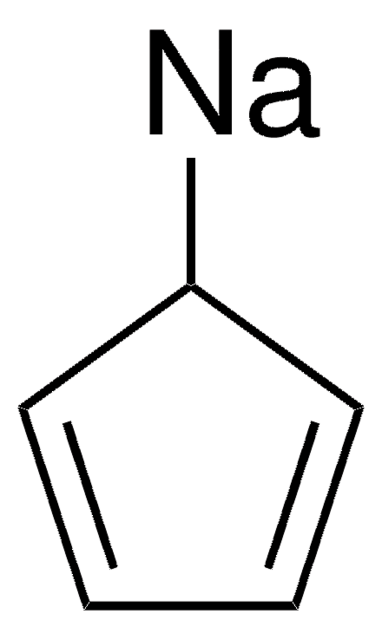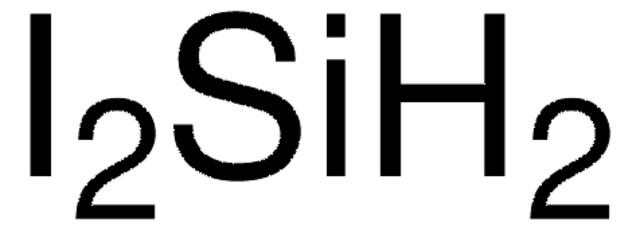440248
Dichloromethylsilane
≥97%
Synonyme(s) :
Methyldichlorosilane
About This Item
Produits recommandés
Densité de vapeur
4 (vs air)
Niveau de qualité
Pression de vapeur
6.79 psi ( 20 °C)
Pureté
≥97%
Forme
liquid
Température d'inflammation spontanée
471 °F
Limite d'explosivité
>55 %
Indice de réfraction
n20/D 1.398 (lit.)
Point d'ébullition
41 °C (lit.)
Pf
−93 °C (lit.)
Densité
1.105 g/mL at 25 °C (lit.)
Température de stockage
2-8°C
Chaîne SMILES
C[SiH](Cl)Cl
InChI
1S/CH4Cl2Si/c1-4(2)3/h4H,1H3
Clé InChI
NWKBSEBOBPHMKL-UHFFFAOYSA-N
Vous recherchez des produits similaires ? Visite Guide de comparaison des produits
Catégories apparentées
Description générale
Application
- A General and Selective Synthesis of Methylmonochlorosilanes from Di-, Tri-, and Tetrachlorosilanes - Discusses a method for synthesizing Methylmonochlorosilanes, showing potential for varied applications in chemical synthesis (Y Naganawa et al., 2020).
- Polymerization of methylsilylenes into polymethylsilanes or polycarbosilanes after dechlorination of dichloromethylsilanes. - Investigates the polymerization of methylsilylenes, offering insights into the production of polymethylsilanes or polycarbosilanes from Dichloromethylsilanes (Y Tian et al., 2016).
- Synthesis of low viscosity of polymethylhydrosiloxane using monomer of dichloromethylsilane - Focuses on producing low-viscosity polymethylhydrosiloxane through hydrolysis-condensation of Dichloromethylsilane, significant for various industrial applications (VF Arini et al., 2022).
Conditionnement
Mention d'avertissement
Danger
Mentions de danger
Classification des risques
Acute Tox. 3 Inhalation - Acute Tox. 3 Oral - Eye Dam. 1 - Flam. Liq. 2 - Skin Corr. 1A - Water-react 3
Risques supp
Code de la classe de stockage
4.3 - Hazardous materials which set free flammable gases upon contact with water
Classe de danger pour l'eau (WGK)
WGK 1
Point d'éclair (°F)
-18.4 °F
Point d'éclair (°C)
-28 °C
Équipement de protection individuelle
Faceshields, Gloves, Goggles
Certificats d'analyse (COA)
Recherchez un Certificats d'analyse (COA) en saisissant le numéro de lot du produit. Les numéros de lot figurent sur l'étiquette du produit après les mots "Lot" ou "Batch".
Déjà en possession de ce produit ?
Retrouvez la documentation relative aux produits que vous avez récemment achetés dans la Bibliothèque de documents.
Les clients ont également consulté
Notre équipe de scientifiques dispose d'une expérience dans tous les secteurs de la recherche, notamment en sciences de la vie, science des matériaux, synthèse chimique, chromatographie, analyse et dans de nombreux autres domaines..
Contacter notre Service technique











